Auroville
We took a Tuck-Tuck out of town to Auroville (City of Dawn) an ‘alternative’ township founded in 1968. The founder Mirra Alfassa then proclaimed its purpose to be: ‘to realise human unity’ ‘where men and women of all countries are able to live in peace and progressive harmony, above all creeds, all politics and all nationalities’.
According to the information provided it is nevertheless organised on national lines with various ‘pavilions’ and its founding charter states participants ‘must be the willing servitor of the Divine Consciousness’.
There is quite a bit about yoga and meditation that I imagine that Emily would find interesting.
It has an impressively designed visitor’s complex in postmodernist concrete, terracotta and glass boasting four ‘gifty’ boutiques and a coffee shop designed by architect Roger Anger.
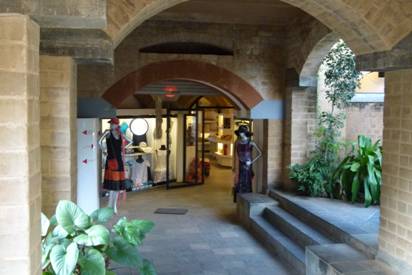
This provides information about the village’s alternative and green credentials; including its commitment to solar energy and recycled water. Strangers are not allowed into the actual village; but there is a viewing location.
I wondered how they keep these well lit trendy shops powered from the rather tiny solar panel in the garden; particularly as it is overshadowed by trees for much of the day. Alongside sits a solar cooking apparatus, with mirrors that have lost their silvering; obviously non-functional.
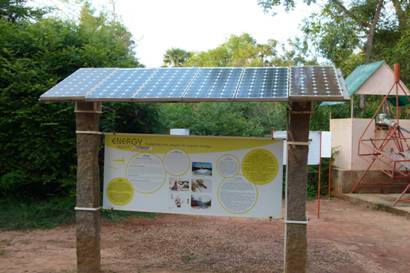
A short walk behind a nearby shed revealed the secret. A 200kW diesel generator that had just stopped as the mains electricity came back up. The village itself is similarly supplied with 11kV from the local distribution grid and no doubt has a lot more than 200kW of diesel back-up.
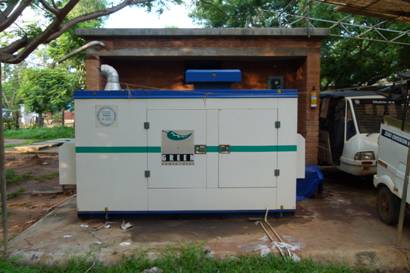
The bushland setting feels surprisingly Australian except that to get there you have to pass some very poor Indians; wondering cows; some colourful market stalls obviously aimed at tourists; lots of Indian vehicles, in all their variety and colour; and numerous blond and/or hairy Europeans on motorbikes; probably commuting between Auroville and their Ashram.
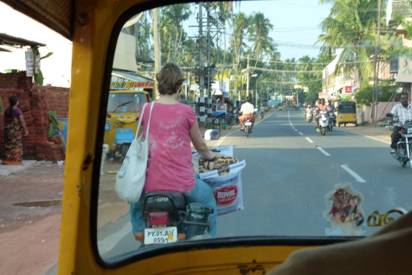
I am by nature a sceptic when it comes to projects like this, that seems to rest on its faith in an idealised view of human nature based on Divine Consciousness.
I don’t believe in a Divine Consciousness nor do I have much faith in revolutionary solutions. I prefer to rest my hopes for (rather than faith in) humanity; on social evolution. This needs to be driven by increasing understanding of how the universe actually works; the rejection of erroneous ideas that have previously misled us; and a healthy climate of open debate and mutual compromise.
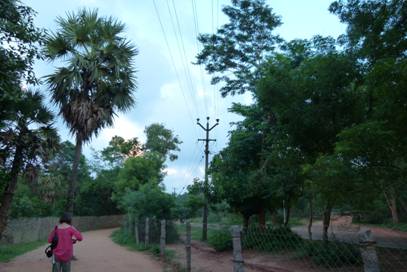
Apart from the cult-like nature of its charter, Auroville seems to be founded on ideas I would like to debate then, in all probability, reject. These seem to include some emanating from the French Existential and Postmodernist intellectual movements, which led to Pol Pot, like agrarian idealism and the abolition of money; and some from eastern mysticism, like faith in a universal spirit.
I don’t intend to spend more time on it. If you want to know more Read here…
